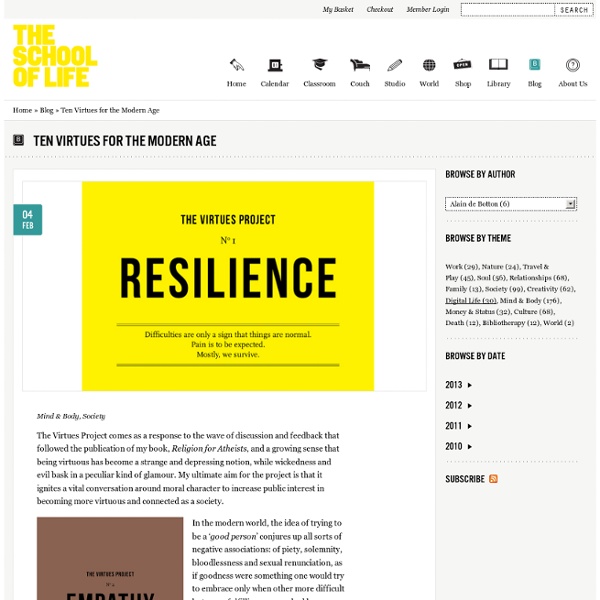The Sixteen Personality Types - High-Level
ISTJ - The Duty Fulfiller Serious and quiet, interested in security and peaceful living. Extremely thorough, responsible, and dependable. Well-developed powers of concentration. Usually interested in supporting and promoting traditions and establishments.
11 Amazing Thank You Notes From Famous People
After a short stint in the New York theater world, comedienne Carol Burnett landed a job as a regular on The Garry Moore Show in 1959. She caught the attention of CBS executives, who offered her her own series in 1967. With her husband Joe Hamilton at the helm, Burnett broke new ground as the first female host of a TV variety show. The Carol Burnett Show ran for 11 seasons and earned a handful of Emmy Awards in the process.
Crafter (role variant)
Crafters are tactical operators, concrete in speech and utilitarian in action. In social situations, they are directive and reserved.[2] Crafters are masters at using tools of every type—artistic, technological, martial. Although they are introverts, they are authoritarian in their interactions with others and can be forceful at influencing people. They focus on accomplishing tasks efficiently and skillfully. To master the tool of their interest, Crafters require a certain degree of seclusion in which to practice. The result is often a virtuosity that other types find difficult to match.[1]
The Value of Play II: How Play Promotes Reasoning in Children and Adults
Twenty years ago, a pair of researchers in England reported on a series of experiments in which they showed that very young children could, in the context of play, solve logic problems that they seemed unable to solve in a serious context. The problems they used were syllogisms, the classic type of logic problem described originally by Aristotle. A syllogism requires a person to combine the information in two premises to decide if a particular conclusion is true, false, or indeterminate (cannot be determined from the premises). Syllogisms are generally easy when the premises coincide with concrete reality, but are more difficult when the premises are counterfactual (contradictions to reality).
Protector (role variant)
The Protector Guardian is one of the 16 role variants of the Keirsey Temperament Sorter,[1] a self-assessed personality questionnaire designed to help people better understand themselves. David Keirsey originally described the Protector role variant; however, a brief summary of the personality types described by Isabel Myers contributed to its development. Protectors correlate with the ISFJ Myers-Briggs type.[2] Protectors are observant, cooperative, informative, and attentive. They are greatly concerned with the security of others and they often find assisting the downtrodden or people with disabilities to be satisfying.
A Route Towards Helping Your Child Attain Better Grades.
Once I met with two parents , who wanted to evaluate me as a possible therapist for their troubled son. His mother began first, by going through a laundry list of the misdeeds this young man had being engaged in, from stealing from them and stores, being arrested, being suspended from school to being verbally abusive to both parents. Then the father spoke next, he was to the point. He wanted to know how my therapy would help improve his son's grades in school.
Promoter (role variant)
The Promoter Artisan is one of the 16 role variants of the Keirsey Temperament Sorter,[1] a self-assessed personality questionnaire designed to help people better understand themselves. David Keirsey originally described the Promoter role variant; however, a brief summary of the personality types described by Isabel Myers contributed to its development. Promoters correlate with the ESTP Myers-Briggs type.[2] Promoters are tactical operators, concrete in speech and utilitarian in action.
10 Things I Wish Someone Told Me 10 Years Ago · LifeReboot.com
At the start of every year, I like to review my goals. I pull out the list of goals I set for myself last January, and then grade myself on how well I did. This year is quite different than past years. Everything changed after Cassie was diagnosed with cancer. Suddenly, nothing was important except her health.
Provider (role variant)
The Provider Guardian is one of the 16 role variants identified in the Keirsey Temperament Sorter,[1] a self-assessed personality questionnaire designed to help people better understand themselves. David Keirsey originally described the Provider role variant; however, a brief summary of the personality types described by Isabel Myers contributed to its development. Providers correlate with the ESFJ Myers-Briggs type.[2] Providers are observant, cooperative, informative, and expressive. They are greatly concerned with the health and welfare of those under their care and they are the nurturers of established social institutions such as businesses, churches, social clubs, and schools. Providers are the most sociable of the Guardians and they strive to provide friendly social service.
Best and Worst Learning Strategies: Why Highlighting is a Waste of Time
In a world as fast-changing and full of information as our own, every one of us — from schoolchildren to college students to working adults — needs to know how to learn well. Yet evidence suggests that most of us don’t use the learning techniques that science has proved most effective. Worse, research finds that learning strategies we do commonly employ, like rereading and highlighting, are among the least effective. (MORE: How to Use Technology to Make You Smarter) The scientific literature evaluating these techniques stretches back decades and across thousands of articles.



